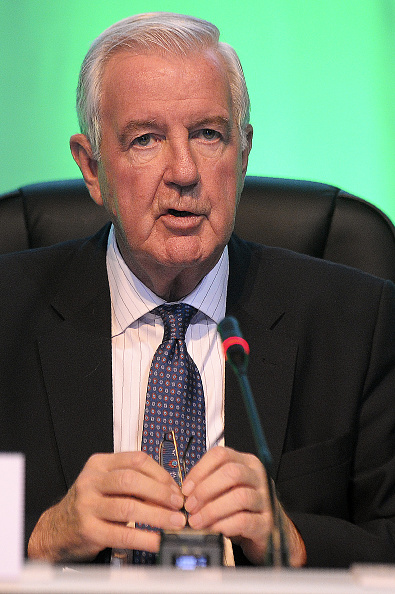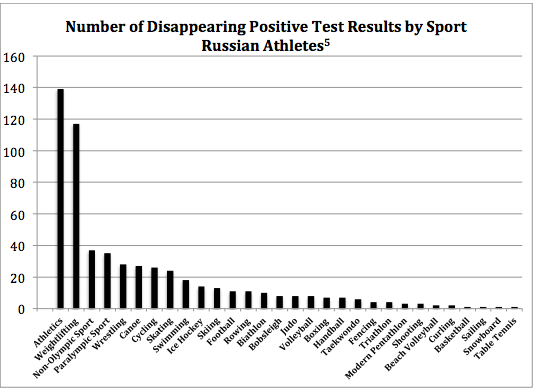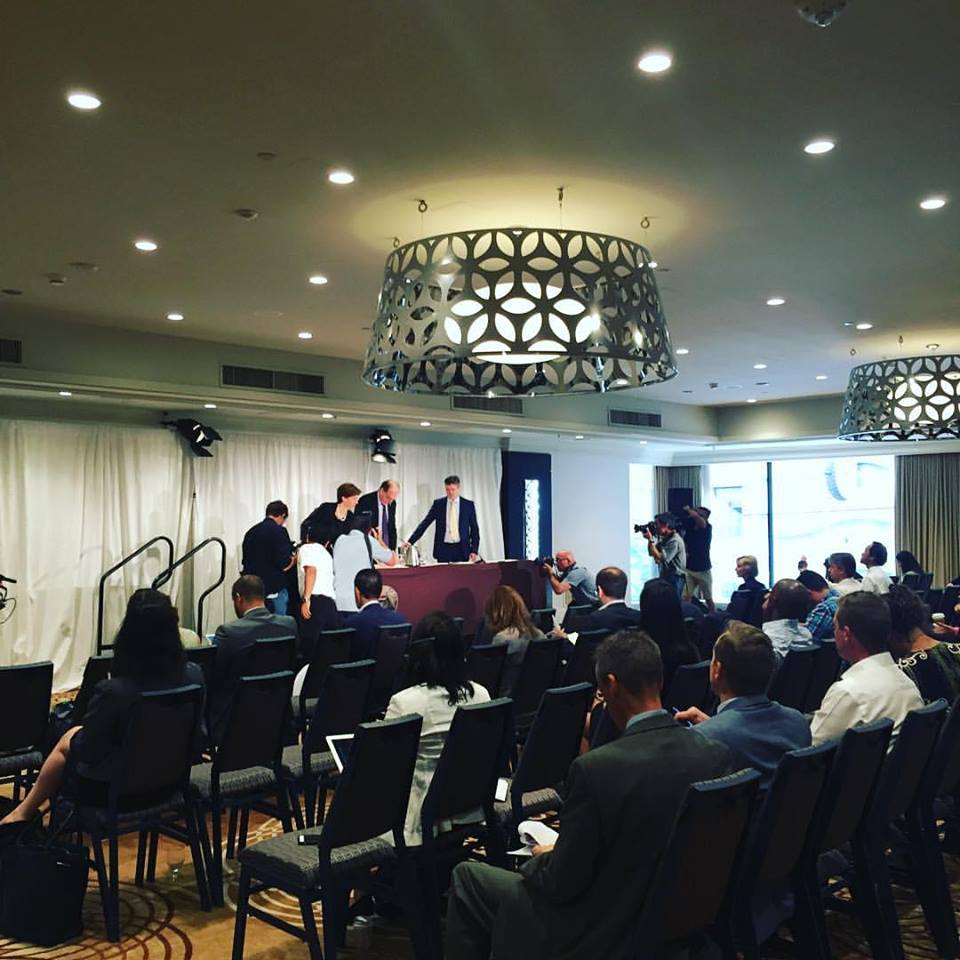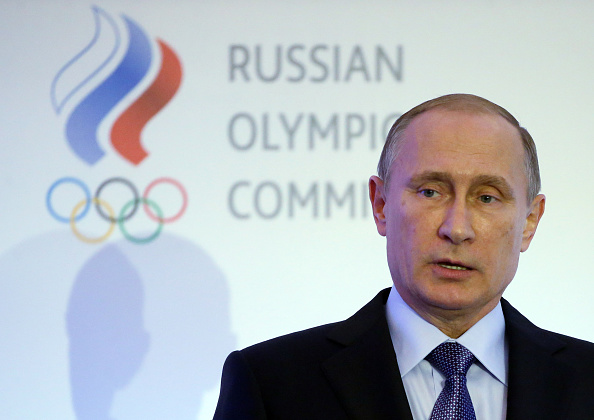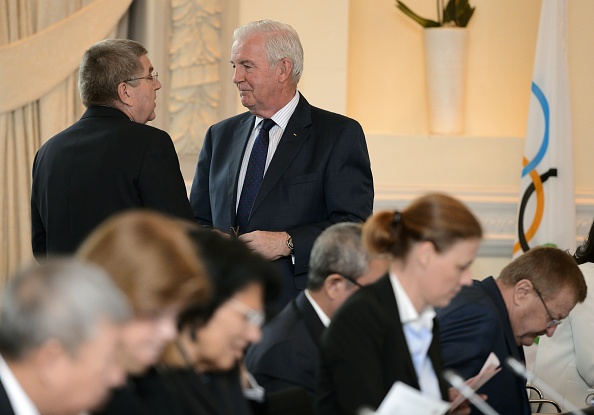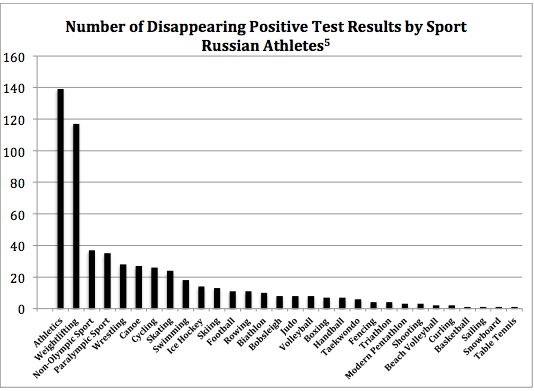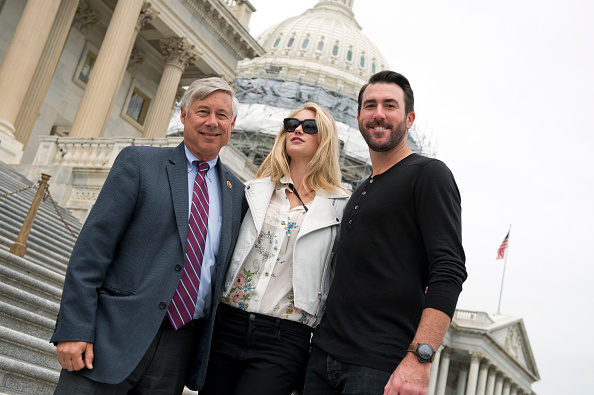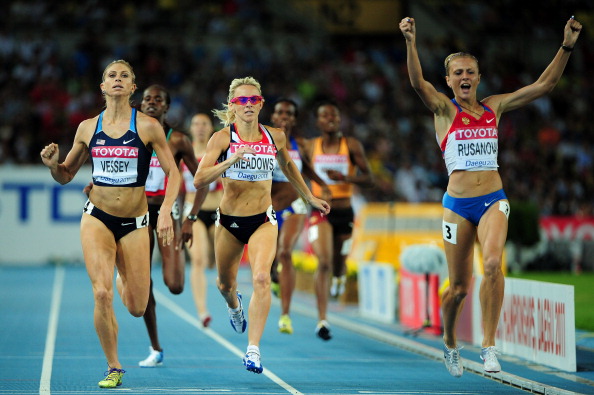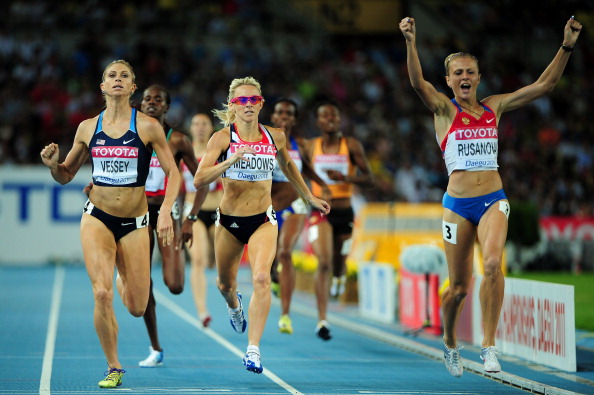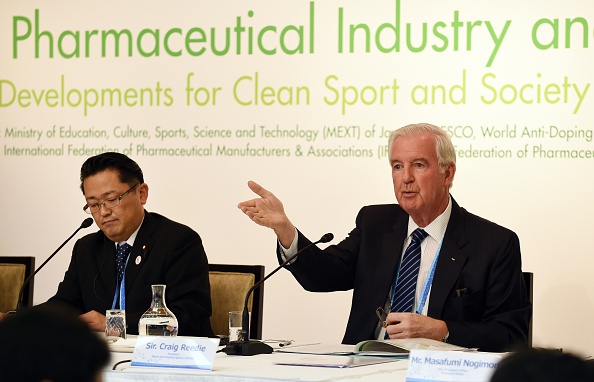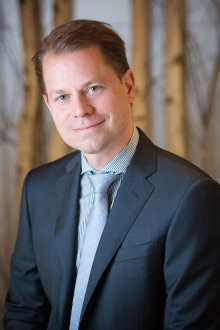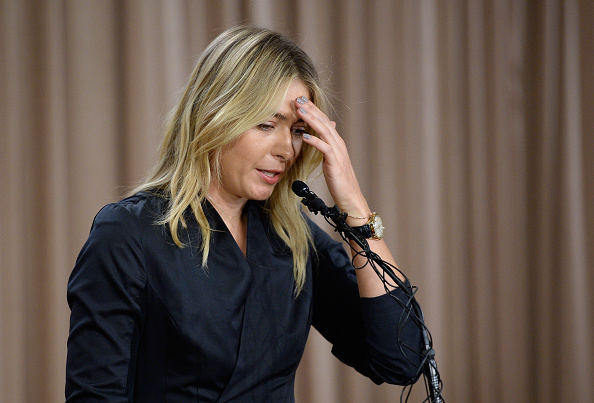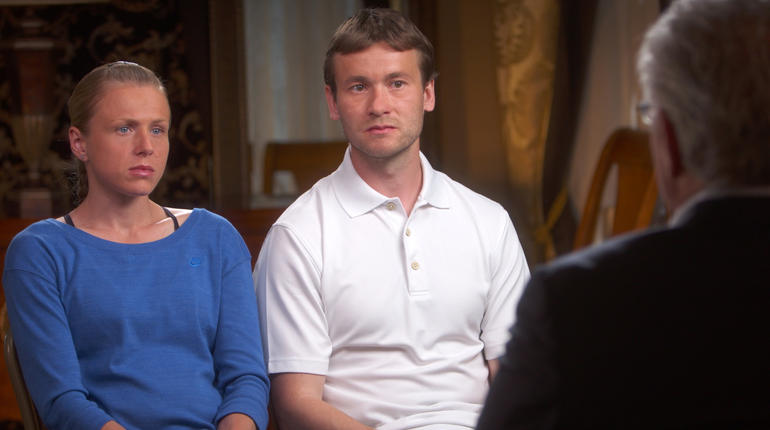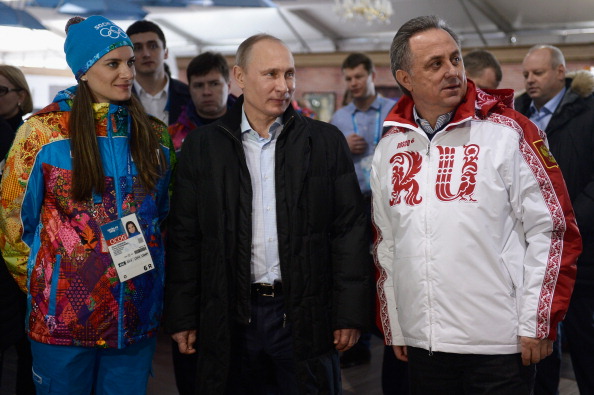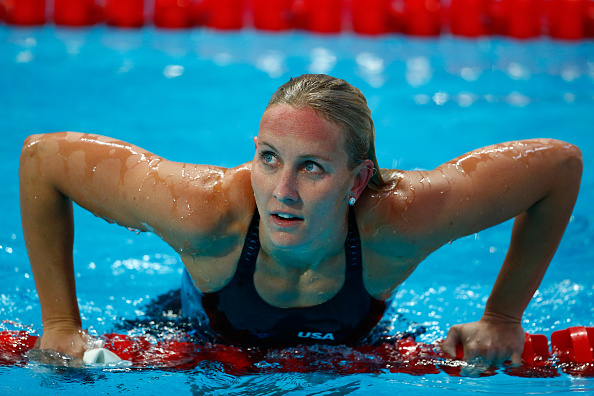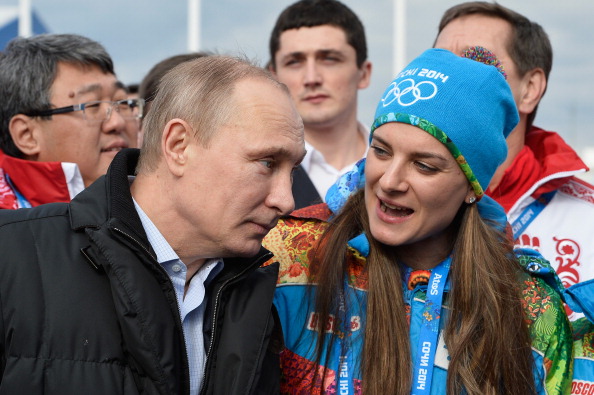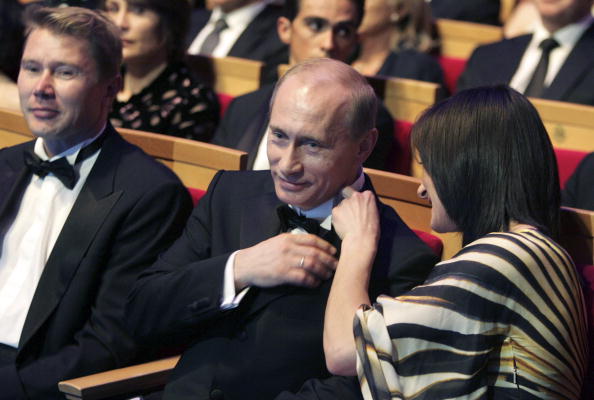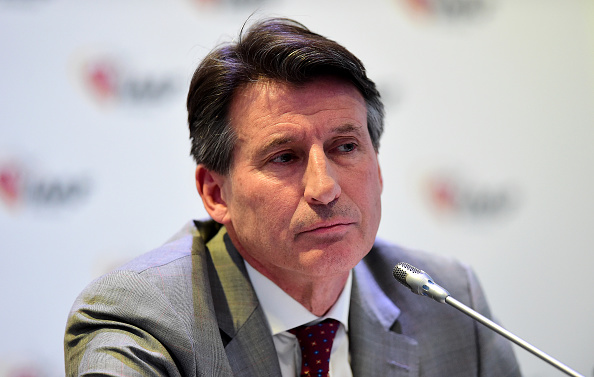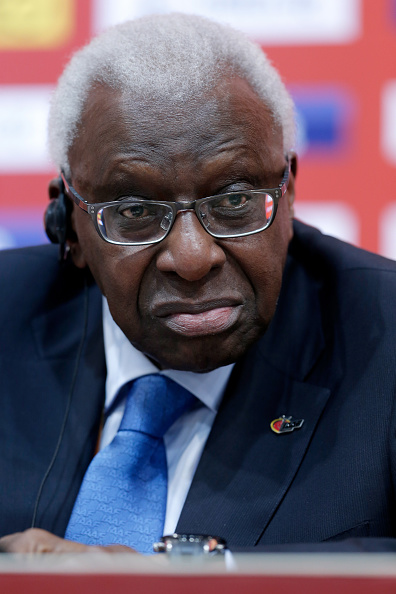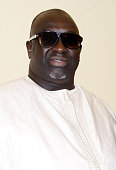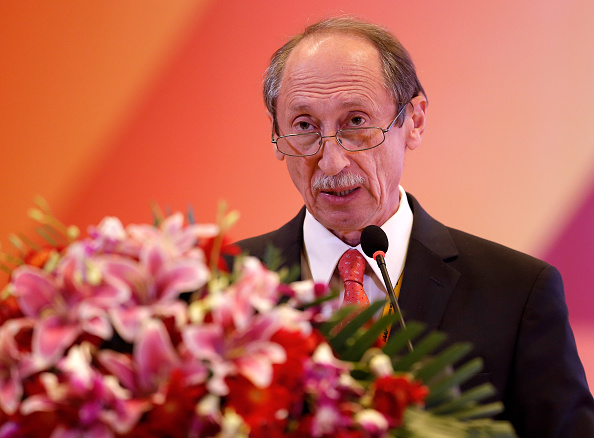When Brock Turner was convicted of sexual assault, were the other swimmers on the Stanford men’s swim team sentenced to jail, too?
When Draymond Green was suspended for Game 5 of the just-concluded NBA Finals, were Steph Curry, Klay Thompson and their other Golden State Warriors teammates told to sit out, too?
On Monday, the Somali track coach Jama Aden was arrested in Spain after police raided his hotel room near Barcelona and, Associated Press reported, found traces of the blood-booster EPO and other banned substances. He coaches, among others, the Ethiopian star Genzebe Dibaba, the women’s 1500 world-record holder; London 2012 London men’s 1500 champ Taoufik Makhloufi of Algeria; and Beijing 800 men’s silver medalist Ismael Ahmed Ismael of Sudan. Should each or all of them be held out of the Rio Olympics? Or everyone on the Ethiopian, Algerian and Sudanese teams?
These examples — and there are many, many more — underscore the complexities of the legal, ethical and moral dilemmas now on the table amid the scandal sparked by allegations of state-sponsored or -sanctioned doping in Russia.

What about double Olympic champ Mo Farah, the British distance star? As the running-themed website Let's Run points out, he has a documented relationship of some sort with Aden. What is Farah guilty of? Anything?
These examples also make clear why the International Olympic Committee did what it did Tuesday in declaring, in a key clause, that every international sports federation “should take a decision on the eligibility of … athletes on an individual basis to ensure a level playing field in their sport.”
Everything else — everything — is just noise.
Or, maybe worse, piggy-backing for political advantage or leverage.
Last Friday, track and field’s international governing body, announced — to great self-congratulation — that it intended to sustain the ban on the Russians imposed months ago. In response, Russian president Vladimir Putin countered with this:
“Responsibility must always be individual and those who have no connection with these violations should not suffer.
“We ourselves are outraged when we’re faced with doping problems and we work to ensure that those guilty are punished. But the clean athletes, as they say, why should they suffer? I really don’t understand.”
At Tuesday's IOC meeting, Russian Olympic Committee president Alexander Zhukov said, “We consider it unfair on the vast majority of our athletes who have never doped and have not violated any rules. They will be punished for the sins of others.”
Zhukov also said, “Banning clean athletes from the Rio Olympic Games contradicts the values of the Olympic movement and violates the principles of the Olympic charter. It is also legally indefensible and devalues their competitors’ success.”
In a preface to the new novel, The Idealist, by the American George Hirthler about Pierre de Coubertin, widely credited with being the founder of the modern Olympic movement, the International Olympic Committee president Thomas Bach writes that the book “reminds us of the soaring idealism that motivated one relentless aristocrat to create a celebration of humanity the entire world could embrace.”
That’s not, for emphasis, the entire world except for the Russian track and field team.
— A THREE-ACT PLAY —
If the prelude to this geopolitical play with multiple dimensions was the imposition of the ban, Act One amounted to that IAAF meeting last Friday, in Vienna. Afterward, IAAF leaders promoted the notion that the federation's move amounted to an act of great courage. That is nonsense. It was political expediency. IAAF president Seb Coe did what he had to do — make it look like the IAAF had some backbone, which got the baying hounds of the press off his back, at least for a moment. All the while, the IOC kicked the decision upstairs, if you will, to the IOC.
Act Two: Tuesday’s IOC decision amid a so-called “summit” in Lausanne, Switzerland. It opens the door, the IOC emphasizing that any Russian who competes would be there as, you know, a Russian, not wearing the virginal white of some Olympic “neutral.”
Act Three: the rounds of forthcoming litigation, presumably before the Swiss-based Court of Arbitration for Sport.

To be clear, the allegations involving the Russians are dead serious.
And the intensity of the matter is all the more likely to ratchet up even higher next month, when a World Anti-Doping Agency-appointed commission led by the Canadian expert Richard McLaren releases a report into allegations of state action in connection with results from the Moscow lab.
McLaren has already reported a “preliminary finding” of “sufficient corroborated evidence to confirm … a mandatory state-directed manipulation” of results at the lab from 2011 through the world track and field championships in Moscow in 2013.
Systemic cheating is as bad as it gets.
Anyone proven to have cheated justifiably deserves sanction.
But, and this is the big but, right now what we have are allegations, not adjudicated proof.
Damning allegations, for sure. But, still — allegations.
Sanction rooted in allegation, not tried proof, is mob justice, fundamentally flawed. It's shameful. And on the wrong side of history.
What we also have is that worst of all situations: officials trying to make reasoned, calm decisions when time is short, the shouting from the media and from online trolls is intense and politicians of all sort are weighing in.
The Rio Olympics start August 5. That’s not anywhere near enough time to sort all this out.
In theory and in practice, too, some number of Russians may well be dirty. Some may be clean. But proving that you are “clean” is itself problematic if not impossible because, as the Americans Marion Jones and Lance Armstrong made abundantly clear, you can pass hundreds of tests and still be juicing to the max.
As the IOC noted Tuesday, the presumption of innocence from Russia and Kenya, in particular, where the national anti-doping agencies have been deemed non-compliant, has been “put seriously into question.”
Still, without direct or circumstantial proof that is tested by cross-examination and that rises to the level of a preponderance of the evidence if not more, in the instance of each and every individual athlete, it is very difficult — for emphasis, very difficult — to make the case that he or she, or for that matter an entire team, ought to be banned.
— OTHER BANS ARE NOT THE SAME —
Other bans in sport, even in Olympic sport, simply are not on-point.
For sure, if one runner on a medal-winning relay team gets busted, the entire relay squad is apt to lose those medals. But that doesn’t mean that a javelin thrower loses hers, too.
Why not? Because, obviously, the javelin thrower can’t be held to answer for the conduct of others.
Two real-life on-point examples:
The American sprinter Tyson Gay admits to doping. The U.S. team’s London 2012 4x100 relay medal? Oops. But does that mean that, for instance, the bronze medal that Justin Gatlin won in the men’s open 100 should be stripped? Of course not. Or that the entire U.S. track and field team ought to be DQ’d? Of course not.
If it turns out that Jamaica’s Nesta Carter really did test positive, as news reports have suggested, that might well mean the return of the Jamaican men’s 4x1 gold medal from Beijing 2008. But should Usain Bolt turn back his other five Olympic medals as well? Should he be banned by association from Rio 2016?
Yes, in weightlifting, bans can be applied to an entire squad. (See: Bulgaria.) But — and this is the big condition — only after a series of escalating, and well-known, preconditions are first met.
In the United States, it is true, the NCAA can impose, say, a post-season ban or strip scholarships for the infraction of a single athlete. But the team still gets to play, at least the regular season. (See: USC.) The lesson of the SMU football team from the 1980s has made plain the institutional distaste for the so-called "death penalty" — which in the case of most Olympic athletes is essentially what a ban from the every-four-years Summer Games would amount to. Beyond which, there is this key distinction: Olympic athletes are professionals, not college "amateurs."
So why the hue and cry, particularly in the United States, Britain and Germany, to ban the entire Russian track and field team?
Because it’s Russia, man.
It’s that simple.
And that profound.
Elementally, many people in the west simply do not like Putin. Probably, they fear the man.
“The overwhelming consensus among American political and national security leaders has held that Putin is a pariah who disregards human rights and has violated international norms in seeking to regain influence and territory in the former Soviet bloc,” the Washington Post wrote in a recent report on presumptive Republican nominee Donald Trump’s financial ties to Russia.
Is that purported American standard the measure by which Putin ought to be judged? Within Russia, he seems awfully popular. There, for instance, the action in Crimea is widely hailed as the righting of a historical wrong.
To believe that this isn’t in many influential quarters all about Putin, in some fashion, is to beg credulity. The New York Times, for instance, is on something of a crusade about the Russians. Of the several stories it published after last Friday’s IAAF ruling, a featured column started out this way, “So the bear will be left to wander the athletic wilderness this August.”
The “bear”? What, are we back in the Cold War? Should we expect to see more of Boris and Natasha as part of a retro promotion of the 1960s hit cartoon, "The Rocky and Bullwinkle Show"?
The Times is so bent on its perspective that it took until the 10th and 11th paragraphs of the story about Tuesday’s IOC action to get to the point, sort of — the concept of individual scrutiny.
Associated Press? First paragraph, appropriately: “Some Russian track and field athletes could be competing under their own flag at the Rio de Janeiro Olympics after all.”
This matters because, for all the changes affecting daily journalism, the Times still tends to set the tone for a great many people. Especially in Washington.
On Monday, the U.S. Senate Commerce Committee sent a seven-page letter to WADA president Craig Reedie demanding answers to all sorts of questions involving the agency and the Russians.

Putin, whatever you may think of him, does not typically spend his time telling Americans how America should be run. Yet in the sport sphere the United States keeps trying to impose itself on him, and Russia — Democrats and Republicans alike, President Obama making a political statement in the choice of his delegation to the Sochi 2014 Games and, now, this letter from the Republican-led Senate.
This is the same committee, by the way, that used to be run by Arizona Republican John McCain, who every now and then finds international sport a compelling vehicle by which to try to score domestic political points. Now it’s overseen by John Thune, a Republican from South Dakota.
If you don’t think it’s exceedingly likely that McCain (standing or re-election in November) and, for that matter, U.S. Anti-Doping Agency chief executive Travis Tygart had some influence over the sending of that letter, then — to quote from the 1980 movie classic “Airplane” — you picked a bad week to stop sniffing glue.
The purported rationale for the letter is that, since 2003, the U.S. government has provided $25 million to help fund WADA.
For fiscal 2016, per WADA accounting, the United States contributed $2.05 million.
How you view that $2.05 million depends, as ever, on your point of view.
No question, $2.05 million marked the largest contribution from any government anywhere in the world to WADA’s budget, about $26 million. All of Africa contributed $27,888. Jamaica, among the Americans’ top rivals in track and field, ponied up all of $4,638.
Britain put up $772,326. Germany: $772,326. Russia: the exact same number, $772,326.
For a different comparison: the 2016 U.S. federal budget spells out expenditures of roughly $3.54 trillion. Not billion, trillion.
Let’s not make the math too complicated: $2 million equals 0.000002 trillion.
The Senate can’t take gun-control action even in the aftermath of 49 murdered at a gay bar in Orlando but finds it worthwhile to expend time and resource chasing answers in connection with an enterprise worth a barely-there fraction of the 2016 federal budget?
Here it is worth recalling what Bach said upon the opening of the Sochi Games, in an indirect but obvious reference to Obama, “People have a very good understanding of what it really means to single out the Olympic Games to make an ostentatious gesture which allegedly costs nothing but produces international headlines.”
— "... THIS NEEDS A FULL REVIEW" —
At the same time, it should be noted that Putin has used sport as an instrument of soft power — that is, to assert Russian standing in the international community and, probably even more importantly, at home.

The Russians spent a reported $51 billion on the 2014 Sochi Games. The track and field championships in 2013, the swim championships in 2015 in Kazan, soccer’s World Cup in 2018 and more — under Putin, Russia is indisputably one of the most influential destinations, and Putin himself one of the most important personalities, in world sport.
There are more than 200 national Olympic committees across the world. The U.S. Olympic Committee funds itself. Everywhere else, sport is typically an arm of the federal government, often its own ministry.
Who wants to believe that Russia might be the only place in the entire world where there might be a connection, provable by the weight of the evidence, to state-sanctioned doping?
For the sake of argument: let’s say, hypothetically, the Kenyans have had a thing going on. As the IOC noted, the Kenyan and Russian national anti-doping agencies are non-compliant. Is it fair to boot all the Russians but let in all the Kenyans? On what theory?
Further: who is to say that cheating in a country like the United States on a grand scale, like that perpetrated by Jones and Armstrong, isn’t all the more serious than cheating — again, if proven — in Russia?
When it comes to the use of illicit performance-enhancing drugs, concepts of “free will” and “choice” may mean one thing in the west and quite another in a place like Russia, given different expectations of and experience with compliance when it comes to "suggestion" or otherwise.
Cheating, ladies and gentlemen and everyone in between, is part of the human condition. If we — the worldwide “we” — want to rein in doping in the Olympic movement, the constructive thing is not seven-page letters looking backward in pursuit of blame.
This is another significant component of what happened Tuesday at that IOC meeting — the forward-looking call for an “extraordinary” world conference on doping matters, in 2017.
No. 1 on the agenda ought to be how to make WADA truly independent. That’s going to take real money, way more than $26 million. Something on the order of 10 times more, as Reedie has said in suggesting that perhaps a fraction of the television revenues supporting Olympic sport ought to go toward the anti-doping campaign.
What's fundamentally at issue is the tension-laden relationship between sport and government, as well as the corollary, the subject that's super-boring until it explodes, like now, in scandal — governance. Sport wants to be autonomous. In every country but one, though, sport largely depends on government funding. Sometimes that money maybe comes with some very complicated strings.
As Bach said Tuesday, referring specifically to the anti-doping campaign in remarks that apply fully in the most general context, “It has to be more transparent. Everybody has to understand better who is doing what and who is responsible for what and this needs a full review.”



